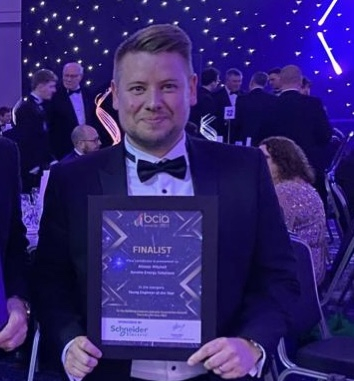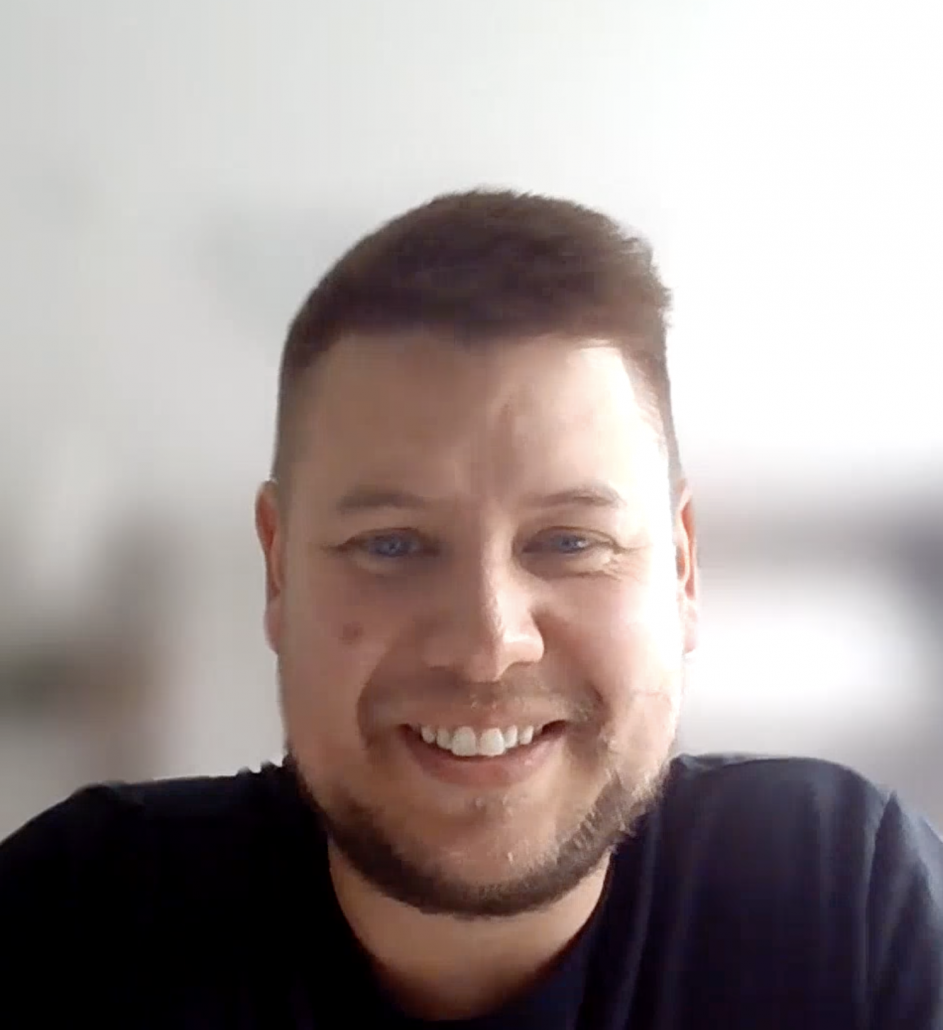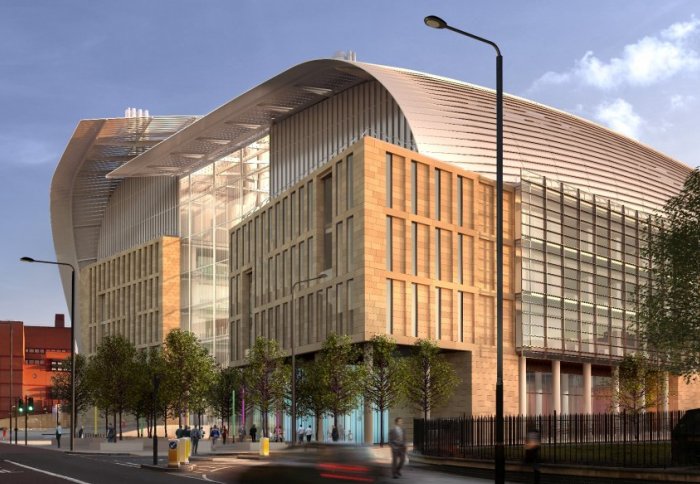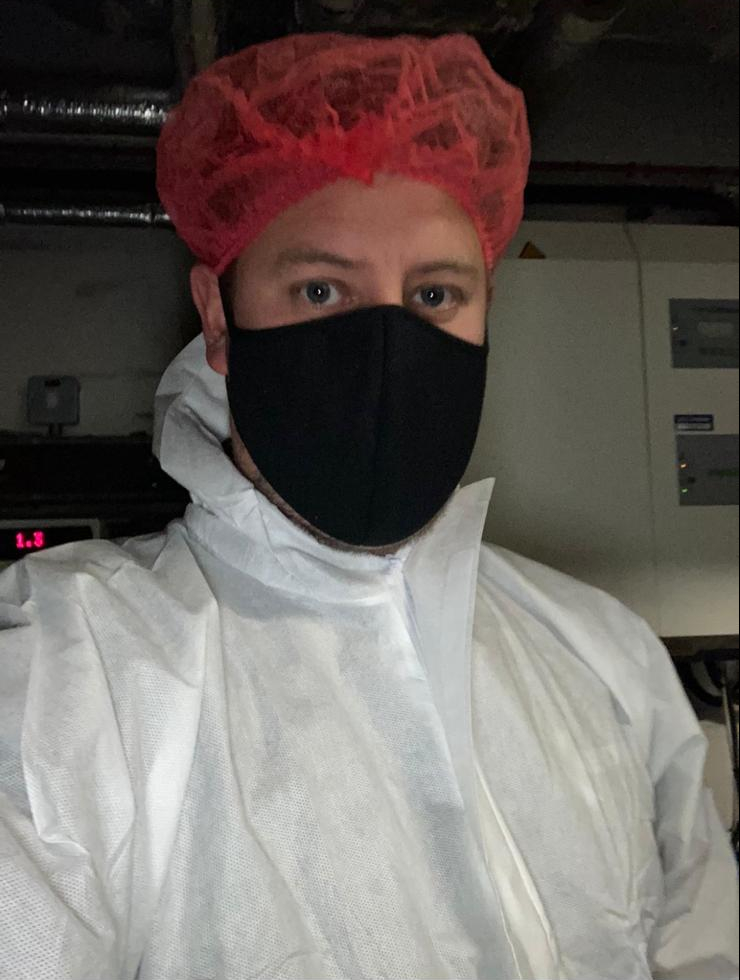20 years of BEMS: industry insights from an operations manager
Our London-based BEMS Operations Manager, Ben, has worked in this industry for nearly 20 years and has spent his entire career working for Kendra’s owners, Chris and Gary.
In 2014, he was the first engineer to join a newly formed London region, under Kendra’s Divisional Director, Stuart Davis. Since then, Ben has watched the region expand and flourish. Now he looks after some of our biggest sites – from University College London (UCL) and the Francis Crick Institute to Stansted Airport.
Here’s what Ben thinks about the evolution of our industry, his role at Kendra and where he fits into all of that.


What brought you to Kendra?
I did my apprenticeship at BMSi, which was founded by Chris and Gary. After Chris and Gary left BMSi and subsequently purchased Kendra, I reached out to ask if I could come onboard. I still wanted to work for Chris and Gary and a lot of people I knew – and basically grew up around – had already joined Kendra. So, we met up for a coffee and it went from there.
Did you join the BEMS industry straight from school
No, I did two years at college studying sport and exercise science but didn’t enjoy it. It led onto physiotherapy and careers that didn’t interest me. At the time, I also worked as a lifeguard for Basildon swimming club – my local swimming club in Essex.
A family friend got me into the controls industry. He worked with Gary and Chris at BMSi as a supervisor. When I told him I was looking at doing an electrical apprenticeship or something similar, he put me forward as his apprentice. After attending an interview at Stansted Airport, I got the job. Since then, I’ve only ever worked in controls.
What do you enjoy about this industry?
I enjoy the people; I enjoy working for Stuart and with all the guys onsite. The camaraderie and banter. I also enjoy feeling like I’ve achieved something. For example, during Covid, the Francis Crick Institute converted storage rooms into Covid-19 test facilities, where they worked towards finding a cure. We supported their efforts as much as we could. They came to us to ask how they could achieve certain conditions inside the rooms, and we provided the controls and strategy. It’s nice when you get the opportunity to make a difference and support something that matters.
In general, though, I just enjoy my day-to-day job and the people I work with.
Would you say the industry has changed much since you joined?
I think when I started the emphasis was on SFG20 routine maintenance with occupant satisfaction being top priority. I would say the industry is now moving toward a more sustainable approach with condition-based maintenance shadowing SFG20, at least that’s what I’m seeing.
Where do you see the industry going?
Over the last six months, sites I look after – like the Francis Crick Institute and UCL – are really starting to adopt and incorporate our PROActiv Energy offering. And that’s because they’re all introducing condition-based maintenance. I think that’s where the industry is going.

The Francis Crick Institute. Credit: Francis Crick (www.crick.ac.uk)
If you’d like to find out what Ben and the team are doing at the Francis Crick Institute, check out our recent case study

Ben working at UCL in a biological study unit
How do you describe your role to those who aren’t familiar with BEMS or controls?
This is a difficult one to answer. It’s hard to explain what we do. Whatever answer you give, people will ask if you can come do some work in their house. If you say you’re an ‘electrician’, they want a rewire, if you say you work in air conditioning – you guessed it – they want AC in every room. So, now I just say: there’s a computer in the basement that controls the entire building – and I look after that.
Do you find anything challenging in your day-to-day role?
Managing people’s expectations can be challenging. We’ll often be asked to turn a quote around in just one day – which requires sifting through 25 documents, all consisting of 1,000 pages! Also, when you work in controls, you are deemed to know everything. People expect you to know about anything that has the word ‘controls’ in it.
What’s your top Kendra memory?
Being involved in winning the Francis Crick Institute upgrade. That has to be my top memory. It’s a huge multimillion pound upgrade project, so a great win for Kendra. I helped put the proposal together, alongside the rest of the team. So, when Stuart rang me to say we were successful, it was a real high point in my career.
Can you share an interesting story from your time at Kendra?
One thing that comes to mind is a time I worked with my colleague, Liam, in an out of hours building at UCL, which, we were told, was haunted. Within the building was a brain storeroom – brains in jars – just to give some context of the area.
We had plugged one laptop into the controller and were using the other to dial in and drive the FCU’s locally. The laptop kept displaying 666 but when we checked it, it was still locked within the riser. I won’t lie, both of us were on edge. To this day, we still don’t know if someone was on the wind up.
How about your favourite part of working week?
I like being around people so the best part of my week is when I’m onsite. I don’t get out often enough because when you work in sales, you have to spend time putting tenders together. So, when I do get out to see our clients and engineers, it’s nice to have a bit of back and forth. As you’ve probably noticed, I do like to chat!

University College London (www.ucl.ac.uk)
Get in touch
If you have any questions or comments, speak to your local office or email info@kendraenergy.co.uk.
What do you like to do outside of work?
I have three kids, aged between three and ten, so I don’t really have time for hobbies as most my time is spent with them. They are into every sport you can think of, so I feel like ‘Dad’s cabs’ driving them about. I do try to swim as often as I can, though, mainly just to maintain my 6-pack!









